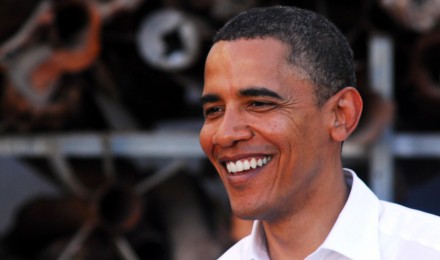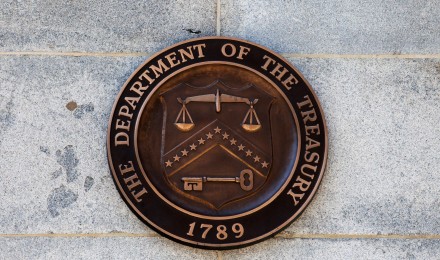On Friday, Pres. Obama said that he would favor a short term fix for the ongoing fiscal crisis rather than see the nation go over the fiscal cliff. But, if the Sunday talk shows were correct there’s been no change of position for the basis for such a deal. The lawmakers couldn’t reach a deal to avoid the fiscal cliff problem before Chritsmas and may not even reconvene before the New Year. Unless the lawmakers can find a solution quickly, American’s will welcome the new year with faced with higher taxes, dramatic reductions in government spending and the likelihood of another recession.
Wyoming Sen. John Barrasso during an interview on Fox News Sunday when asked if he thought the country would go over the Cliff said, “I believe we are, I think the president is eager to go over the cliff for political purposes. I think he sees a political victory at the bottom of the cliff.”
However, Democratic Sen. Charles Schumer of New York told NBC’s Meet the Press that he believes Republican House Speaker John Boehner is frightened to reach a bipartisan solution for fear that it would cost him the speakership, said Schumer: “I know he’s worried.” Boehner has several times told reporters that he is not concerned about his reelection as House Speaker.
Contradictory opinions such as these, as well as placing blame on each party has been going on since Congress reconvened after the election. Now, with the country poised to tumble off the fiscal cliff the intensity of finger-pointing has increased.
If Congress is unable to resolve their issues before January 1, $600 billion of combined tax increases and spending cuts will automatically take effect.
The consensus amongst economists is that if these austerity measures take effect if the fiscal crisis is not resolved, the United States economy could reenter a recession that would have a worldwide impact.
Most fiscal experts believe that the most immediate effects of not reaching a deal will occur in financial markets, which to date have been fairly quiet as Congress argues amongst itself, however, Wall Street could react quickly and without warning if there are no prospects for a deal.
Some political pundits suggest that it would be easier to reach a deal after January 1, as Congress could rush through a deal on taxes and the $109 billion in automatic spending cuts for 2013 that most in Congress do not want to see happen. The feeling is that as all tax rates would go up on January 1 it would be much easier to reduce tax rates on middle and lower income taxpayers while leaving high tax rates for the wealthy. This might be acceptable to Republicans as they would not technically be voting for a tax increase but only for tax breaks.
Meanwhile Democratic Sen. Kent Conrad, chairman of the budget committee told Fox News Sunday that Obama and Boehner are not far apart and that he believed a deal could be reached for the long-term. Conroy told Fox news: “I would hope we have one last attempt here to do what everyone knows needs to be done which is the larger plan that really does stabilize the debt and get us moving in the right direction.”
Unfortunately, it appears that Sen. Conrad is in the minority.
On Friday, Pres. Obama said that he would favor a short term fix for the ongoing fiscal crisis rather than see the nation go over the fiscal cliff. But, if the Sunday talk shows were correct there’s been no change of position for the basis for such a deal. The lawmakers couldn’t reach a deal to avoid the fiscal cliff problem before Chritsmas and may not even reconvene before the New Year. Unless the lawmakers can find a solution quickly, American’s will welcome the new year with faced with higher taxes, dramatic reductions in government spending and the likelihood of another recession.
Wyoming Sen. John Barrasso during an interview on Fox News Sunday when asked if he thought the country would go over the Cliff said, “I believe we are, I think the president is eager to go over the cliff for political purposes. I think he sees a political victory at the bottom of the cliff.”
However, Democratic Sen. Charles Schumer of New York told NBC’s Meet the Press that he believes Republican House Speaker John Boehner is frightened to reach a bipartisan solution for fear that it would cost him the speakership, said Schumer: “I know he’s worried.” Boehner has several times told reporters that he is not concerned about his reelection as House Speaker.
Contradictory opinions such as these, as well as placing blame on each party has been going on since Congress reconvened after the election. Now, with the country poised to tumble off the fiscal cliff the intensity of finger-pointing has increased.
If Congress is unable to resolve their issues before January 1, $600 billion of combined tax increases and spending cuts will automatically take effect.
The consensus amongst economists is that if these austerity measures take effect if the fiscal crisis is not resolved, the United States economy could reenter a recession that would have a worldwide impact.
Most fiscal experts believe that the most immediate effects of not reaching a deal will occur in financial markets, which to date have been fairly quiet as Congress argues amongst itself, however, Wall Street could react quickly and without warning if there are no prospects for a deal.
Some political pundits suggest that it would be easier to reach a deal after January 1, as Congress could rush through a deal on taxes and the $109 billion in automatic spending cuts for 2013 that most in Congress do not want to see happen. The feeling is that as all tax rates would go up on January 1 it would be much easier to reduce tax rates on middle and lower income taxpayers while leaving high tax rates for the wealthy. This might be acceptable to Republicans as they would not technically be voting for a tax increase but only for tax breaks.
Meanwhile Democratic Sen. Kent Conrad, chairman of the budget committee told Fox News Sunday that Obama and Boehner are not far apart and that he believed a deal could be reached for the long-term. Conroy told Fox news: “I would hope we have one last attempt here to do what everyone knows needs to be done which is the larger plan that really does stabilize the debt and get us moving in the right direction.”
Unfortunately, it appears that Sen. Conrad is in the minority.







